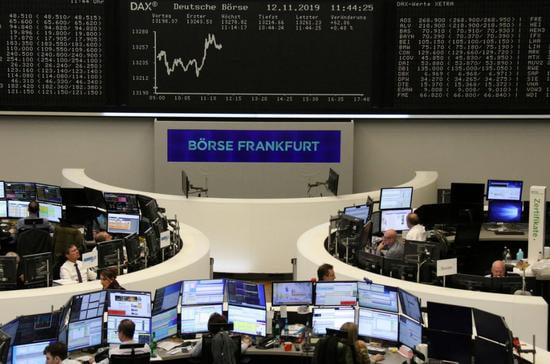Tech Titans and the Trump Transition: A Deep Dive into Corporate Strategies
Meta Description: Apple CEO Tim Cook, Amazon's Bezos, and other tech giants' strategies during the Trump transition – analyzing their meetings, donations, and the implications for the tech industry. #TrumpTransition #TechGiants #PoliticalDonations #CorporateStrategy #Apple #Amazon #Meta
Imagine this: the air crackles with unspoken expectations. Across a polished mahogany table, two titans of industry sit down to dinner. One, a seasoned CEO, navigating the choppy waters of global politics and market fluctuations. The other, a newly elected president, wielding the power to reshape the very landscape of American business. This isn't a scene from a Hollywood blockbuster; it's the reality of the post-election maneuvering in the tech world. The recent meeting between Apple CEO Tim Cook and President-elect Trump at Mar-a-Lago sparked a firestorm of speculation, igniting discussions about corporate strategies, political influence, and the delicate dance between business and politics. This isn't just about a private dinner; this is a profound shift in the power dynamics between Silicon Valley and Washington D.C., a story filled with intrigue, hefty financial contributions, and the uncertain future of tech regulation under a new administration. We'll delve into the intricate details of these interactions, analyze the motivations behind them, and explore the potential implications for the future of the tech industry. We'll uncover the quiet diplomacy, the strategic donations, and the high-stakes game of influence that unfolds behind closed doors. Prepare to be surprised – and maybe even a little shocked – by what we uncover about the complex relationship between tech giants and political power. Get ready to unravel the mysteries and understand the implications of this unprecedented power play. This isn't just a news story; it's a masterclass in corporate strategy, political maneuvering, and the unpredictable nature of power in the 21st century.
Apple, Amazon, and the Art of Presidential Engagement
The recent meeting between Tim Cook and President-elect Trump wasn't a spontaneous get-together; it was a carefully orchestrated move within a broader strategy. Following Trump's election victory, Cook, along with other tech CEOs, found themselves at a crossroads. The previous administration had a complex relationship with Silicon Valley, marked by both collaboration and conflict. Now, with a new president-elect in the picture, these tech giants needed to chart a course that would safeguard their interests while navigating the often unpredictable waters of a Trump administration.
Cook’s congratulatory message on X (formerly Twitter), stating Apple's eagerness to collaborate, was a strategic first step. This gesture, while seemingly innocuous, signaled a willingness to engage and foster a positive working relationship. The subsequent dinner meeting at Mar-a-Lago cemented this intention. Reports suggest the conversation covered a range of topics, from the EU's hefty fine against Apple to broader concerns about tech regulation and the future of American innovation. This proactive approach stands in stark contrast to a more passive strategy that could have risked alienating the incoming administration.
Meanwhile, Amazon, under the leadership of Jeff Bezos, adopted a different, yet equally strategic approach. Amazon's $1 million donation to the Trump inauguration fund, coupled with the announcement that Prime Video would stream the event, demonstrates a clear commitment to fostering goodwill with the new administration. This move, while financially significant, also offers immense brand exposure and an opportunity to solidify its position as a key player in the entertainment and ecommerce landscape.
Beyond the financial contributions, the meetings themselves represent a powerful display of influence. The access granted to these tech CEOs underscores the significance of their industries and the potential impact they can have on the national economy. These interactions aren't merely social events; they're high-stakes negotiations where the future of tech policy, trade agreements, and even antitrust legislation hang in the balance.
The Financial Landscape: Donations and the Power of Influence
The financial contributions made by tech giants to the Trump inauguration fund raise crucial questions about the relationship between money and political power. OpenAI CEO Sam Altman's personal donation of $1 million, coupled with similar significant contributions from Amazon and Meta, highlight the significant financial resources at the disposal of these companies. These donations aren't just acts of philanthropy; they're strategic investments designed to cultivate relationships and influence policy decisions.
It's important to note the context of these contributions. While the Trump administration initially forwent federal transition funds, the absence of restrictions on private donations created an environment where large corporations could exert significant financial influence. This highlights a critical point: the potential for immense private funding to shape the political landscape and influence policy decisions impacting the very industries making these contributions. It's a power dynamic that deserves careful scrutiny and consideration.
This contrasts sharply with the traditional model of fundraising, where federally regulated contributions are subject to stricter limits. This raises concerns about the potential for undue influence and the need for greater transparency in political fundraising. It's a complex issue with no easy answers, but it’s an issue that demands thoughtful discussion and critical analysis.
A Comparative Look at Tech Giant Strategies:
| Company | Strategy | Financial Contribution | Potential Implications |
|--------------|----------------------------------------------|-------------------------|----------------------------------------------------|
| Apple | Proactive engagement, direct meetings | N/A (not publicly disclosed) | Positive working relationship, influence on tech policy |
| Amazon | Financial contribution, event streaming | $1 million | Goodwill, brand exposure, influence on e-commerce policy |
| OpenAI | Personal contribution by CEO | $1 million (personal) | Personal access, potential influence on AI regulation |
| Meta (Facebook)| Financial contribution | $1 million | Goodwill, influence on social media regulation |
Navigating the Regulatory Landscape: A Look Ahead
The Trump administration's stance on tech regulation remains a critical concern for tech giants. While the specifics of their policies are yet to be fully unveiled, the initial indications suggest a potential shift in regulatory approach compared to the previous administration. This uncertainty presents a significant challenge, forcing tech companies to adapt their strategies accordingly.
The meetings and donations described above can be interpreted as proactive attempts to shape that regulatory landscape. By engaging early and demonstrating goodwill, these companies aim to foster a more favorable environment for their operations. This involves not only directly influencing policies but also shaping the narrative surrounding their industries. The success of these strategies will depend on the evolving relationship between the tech industry and the new administration.
The future of tech regulation under the current administration remains uncertain. However, the proactive approach taken by several tech giants suggests a clear understanding of the importance of early engagement and the high stakes involved in navigating this ever-changing political landscape.
Frequently Asked Questions (FAQs):
Q1: Why are these meetings and donations so significant?
A1: These actions represent strategic moves by tech giants to build relationships with the new administration and influence policy decisions that could significantly impact their businesses. The potential for regulatory changes, trade disputes, and antitrust investigations makes early engagement crucial.
Q2: Are these donations legal?
A2: While the legality of these donations is generally not in question, the lack of restrictions on private donations during this period raises concerns about potential undue influence and the need for greater transparency in political fundraising.
Q3: What are the potential risks for tech companies?
A3: Risks include unfavorable regulatory changes, increased antitrust scrutiny, and potential trade disputes impacting their global operations. Failure to navigate this political landscape effectively could have significant financial and reputational consequences.
Q4: What are the potential benefits for tech companies?
A4: Potential benefits include a more favorable regulatory environment, increased access to policymakers, and opportunities to shape national policies related to innovation, technology, and trade.
Q5: How might this impact the average consumer?
A5: The outcome of these interactions could directly affect consumers through changes in pricing, product availability, data privacy regulations, and the overall digital experience.
Q6: Could this lead to further consolidation in the tech industry?
A6: While it's too early to definitively say, the potential for regulatory changes could create a competitive environment that favors larger, more established companies, potentially leading to further consolidation.
Conclusion: A Shifting Landscape
The interactions between tech giants and the Trump administration represent a dynamic and evolving power play. The strategies employed by Apple, Amazon, and other tech companies highlight the importance of proactive engagement, financial influence, and strategic communication in navigating the complex landscape of American politics. While the long-term implications remain to be seen, these early interactions set the stage for a period of significant change and uncertainty in the tech industry and beyond. The future will depend on the ongoing interactions between these powerful players and the ability of policymakers to create a regulatory framework that fosters both innovation and accountability. This ongoing saga will undoubtedly continue to unfold, shaping not only the future of the tech industry but also the broader economic and political landscape of the United States. Stay tuned – this is far from over.



